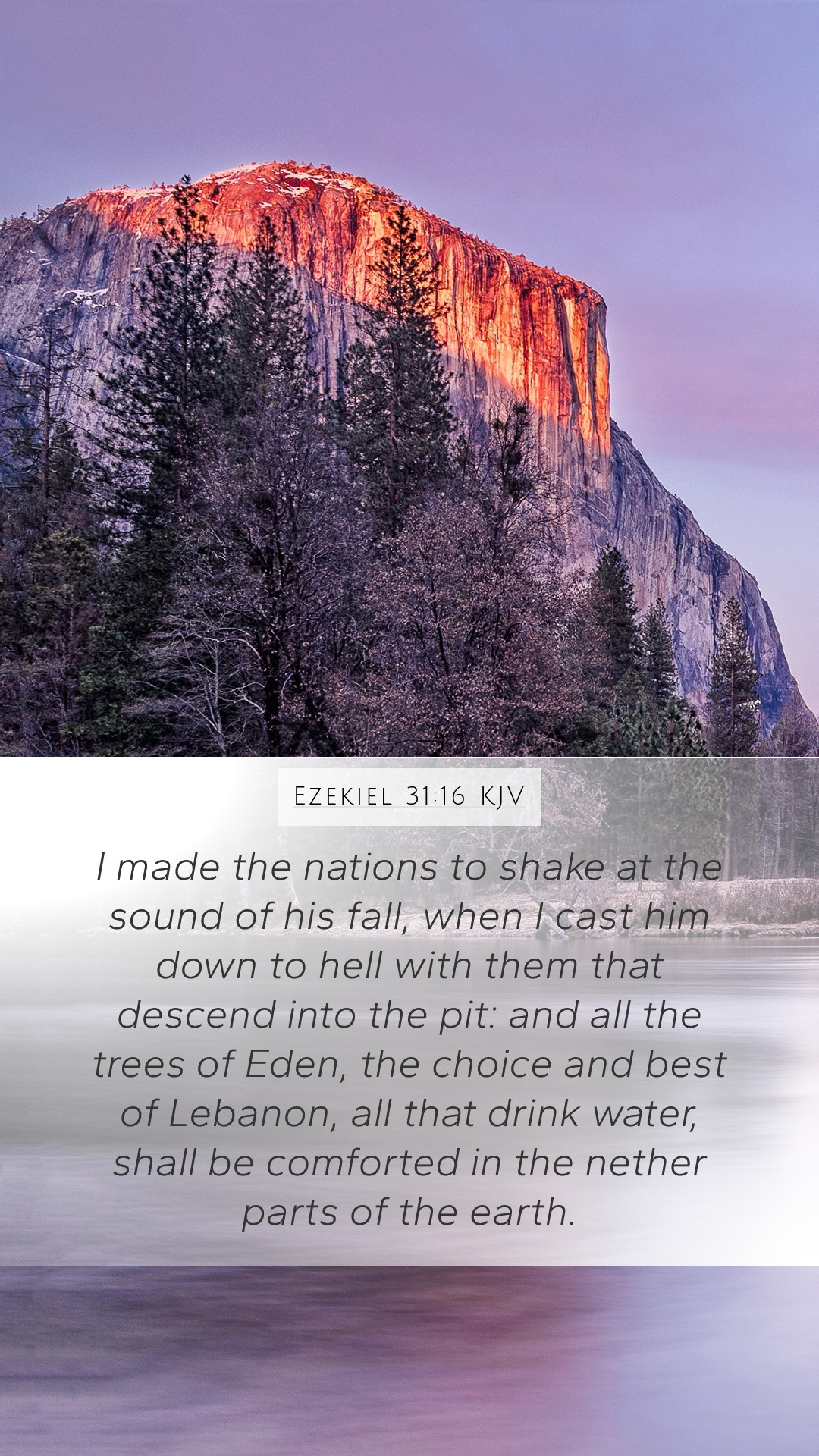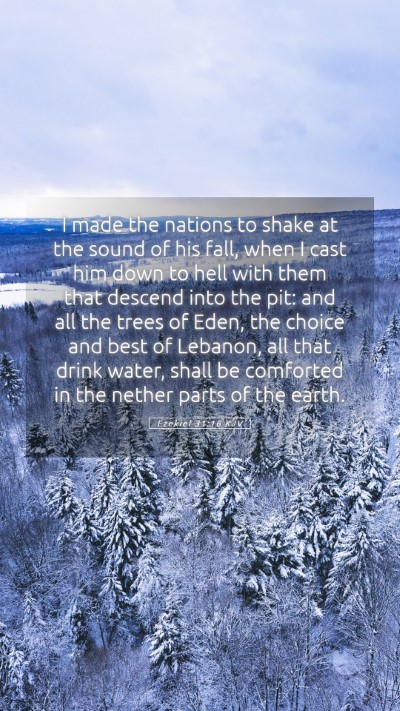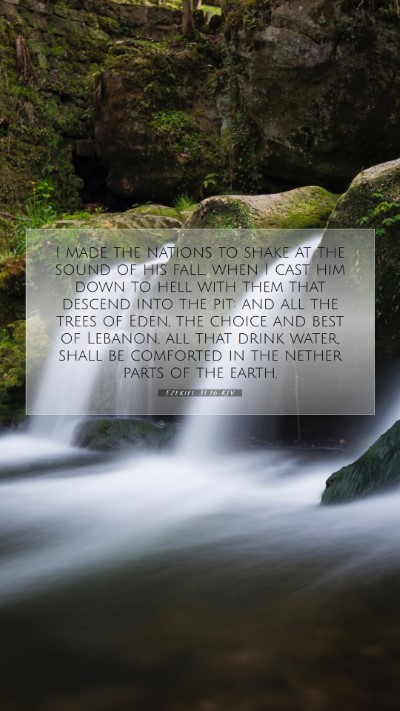Ezekiel 31:16 - Understanding the Verse
Ezekiel 31:16 states: "I made the nations to shake at the sound of his fall, when I cast him down to hell with them that descend into the pit: and all the trees of Eden, the choice and best of Lebanon, all that drink water, shall be comforted in the nether parts of the earth."
Context of the Verse
This verse is part of a larger passage in Ezekiel where God, through the prophet Ezekiel, speaks of the downfall of Assyria, represented metaphorically as a mighty tree. Ezekiel uses vivid imagery to show the grandeur of Assyria and its subsequent demise, portraying it as a fallen giant.
Meaning and Interpretation
The meaning of Bible verses often requires a careful Bible verse commentary that considers historical and theological context. In verse 16, we find several themes and teachings:
-
Judgment and Fall:
Matthew Henry notes that the fall of Assyria serves as a warning to other nations about the consequences of pride and power apart from reliance on God. This indicates that despite their strength, nations are ultimately subject to divine authority.
-
National Impact:
Albert Barnes suggests the profound effect that Assyria's fall has on the surrounding nations. The "shaking" signifies not just physical tremors but an emotional and political turmoil that resonates throughout the region, indicating that nations are interconnected in their fates.
-
Comfort in Destruction:
Adam Clarke elaborates on the phrase “all the trees of Eden” and how they symbolize other nations affected by Assyria's decline. His interpretation suggests that even in destruction, there is a divine comfort that coincides with the downfall, hinting at a restoration that follows judgment.
Historical Context
Understanding Scripture requires an awareness of the historical backdrop of the exile period in which Ezekiel prophesied. Assyria was a dominant empire, representing oppression over Israel. The pronouncement of its downfall offers hope to the Israelites in exile, affirming God's sovereignty over all nations.
Theological Themes
The verse conveys significant theological implications:
- Divine Sovereignty: God's control over nations, including their rise and fall.
- Hope for the Oppressed: Assurance that God will administer justice and provide comfort to those who have been wronged.
- The Nature of Judgment: God's judgment is both a warning and an act of correction for nations that turn away from righteousness.
Application of the Verse
Application of Bible verses to daily life can be richly informed by the lessons of Ezekiel 31:16:
- Self-Examination: Reflect on personal and national pride and the need for humility before God.
- Encouragement in Trials: Trust in God's justice and timing, knowing that even in adversities, He is at work for our good.
- Awareness of Consequences: Recognize that actions have consequences, both individually and collectively, urging a return to righteousness.
Related Bible Cross References
- Isaiah 14:15: Discusses the fall of Lucifer, drawing parallels to the pride before the fall.
- Jeremiah 48:38: Similar themes of national judgment and destruction are echoed.
- Ezekiel 32:18-19: Further elaborates on the fate of nations and their leaders in the context of God's judgment.
Conclusion
The insights garnered from public domain commentaries illuminate the challenging yet profound nature of Ezekiel 31:16. Bible study resources that include such interpretations can enhance one's understanding of Scripture and provide deeper engagement with the text.


